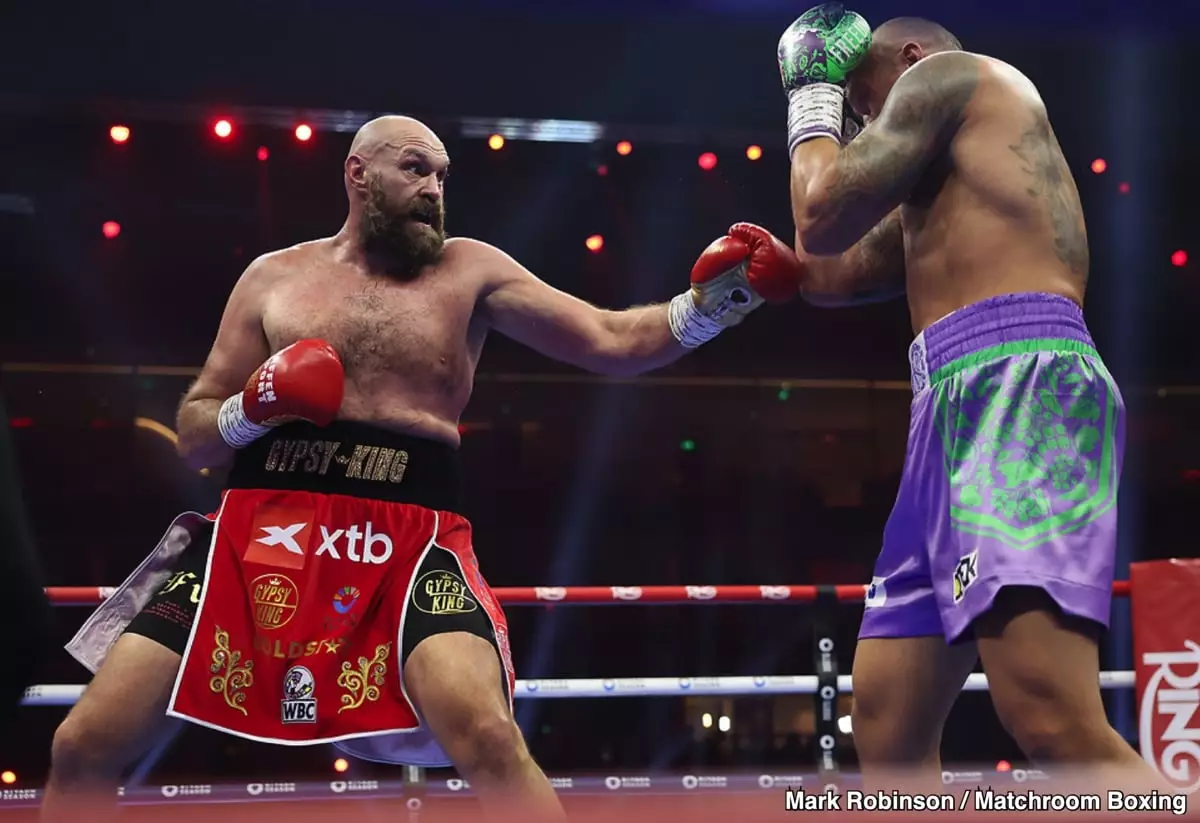The boxing world rarely stands still, especially following high-stakes bouts like the recent clash between Tyson Fury and Oleksandr Usyk. This contest, which was heavily anticipated and extensively analyzed, took place in Riyadh and culminated in a significant result that has provoked myriad opinions. Notably, Frank Warren, Fury’s promoter, has publicly reassessed the fight in light of the recent discourse. His claims present an interesting angle on what transpired within the squared circle.
The Fight Breakdown: What Actually Happened?
When evaluating the Fury vs. Usyk matchup, it is necessary to acknowledge the crucial details that shaped the outcome. Usyk entered the fight with a record of 23 wins, no losses, and 14 knockouts, embodying an unwavering confidence that was strategic and calculated. Meanwhile, Fury, with a proven track record of 34 wins (24 KOs), was favored by many to come out victorious. However, throughout the bout, Fury appeared to struggle as Usyk exhibited exceptional tactical acumen and agility, which ultimately led to the decisive unanimous decision awarded to Usyk by all three judges.
Frank Warren, who represents Fury, noted that he watched the fight again and felt that the scoring was “closer” than his initial perceptions. Despite this reassessment, Warren maintains that his fighter deserved the victory. This perspective, while understandable from a promoter’s standpoint, appears at odds with the general consensus shared by boxing fans and analysts alike, who observed a clear advantage for Usyk.
An integral aspect of this bout’s narrative revolves around the effectiveness of Fury’s trainer, SugarHill Steward. As the fight progressed, there were moments where Fury failed to adhere to the game plan. Steward’s instructions were to keep pressing Usyk, but Fury seemed to retreat whenever he faced effective body shots from his opponent. This hesitation raises questions about communication within the corner—should Fury have been made more aware of the fight’s precarious nature?
In championship rounds, the boxers’ mindset can significantly alter the trajectory of the fight. If SugarHill had conveyed a sense of urgency, urging Fury to push harder in the final rounds, the outcome might have diverged. Yet, the apparent disconnect left Fury believing he was holding his ground, which inadvertently prompted him to coast rather than seize what was becoming an increasingly desperate situation.
Diverse Perspectives: Discrepancy in Opinions
Frank Warren’s assertion that Fury triumphed in the bout resonates within a vacuum of loyalty but starkly contrasts with opinions from a broader audience. Many knowledgeable fans and pundits have expressed disbelief at Warren’s read of the fight, leaning heavily on Usyk’s superior performance. The conflict between Warren’s views and the popular sentiment centers on the challenge of aligning what one believes in loyalty to their fighter versus the observable reality of the fight’s events.
While Warren’s extensive career in boxing provides him with a framework of understanding, it also colors his interpretation. His belief that many judges overlooked Fury in the last phases of the battle suggests a concern for the scoring system and how subjective interpretations can lead to contentious outcomes. This perspective, while valid, still must contend with the collective assessment of the bout.
The aftermath of Fury vs. Usyk provides fertile ground for reflection on the nature of competition in boxing. It challenges fighters, trainers, and promoters alike to re-evaluate their strategies and training methodologies. The notion of perseverance in the face of difficulty cannot be overstated; however, it must also exist within the context of adaptability and awareness.
Tyson Fury, despite his recent setback, possesses the talent to reclaim his standing in the heavyweight division. The important takeaway from the fight is not merely the decision but the manner in which he approached it. In boxing, as in life, acknowledgment of one’s shortcomings can pave the way for growth. Thus, the lessons drawn from a battle as complex as Fury vs. Usyk may ultimately serve as the catalyst for a more resilient and strategic approach in future encounters.

